Housing Market: A Story of Highs and Lows

For a while, sellers had the upper hand in the housing market. Homes were selling in record time, and buyers had to outbid each other just to compete. But the tides are turning. Some markets are still red-hot, with fierce competition among buyers, while others are seeing homes linger longer, giving buyers a chance to catch their breath.
In short, we’re looking at two very different market experiences—knowing which one you're in is key to making the right move.
What’s the Difference Between a Buyer’s and Seller’s Market?
In a buyer’s market, inventory is high and demand is lower. That means homes tend to stay on the market longer, sellers may have to lower their prices, and buyers often have more leverage to negotiate.
In a seller’s market, the script flips. There are more buyers than homes available, which leads to faster sales, multiple offers, and rising prices as buyers compete to win the deal.
Signs of a Shifting Market
For years, nearly every region in the U.S. leaned heavily toward sellers. That made things especially challenging for first-time buyers. But change is in the air. According to Zillow, the national market is showing signs of leveling out (see chart below).
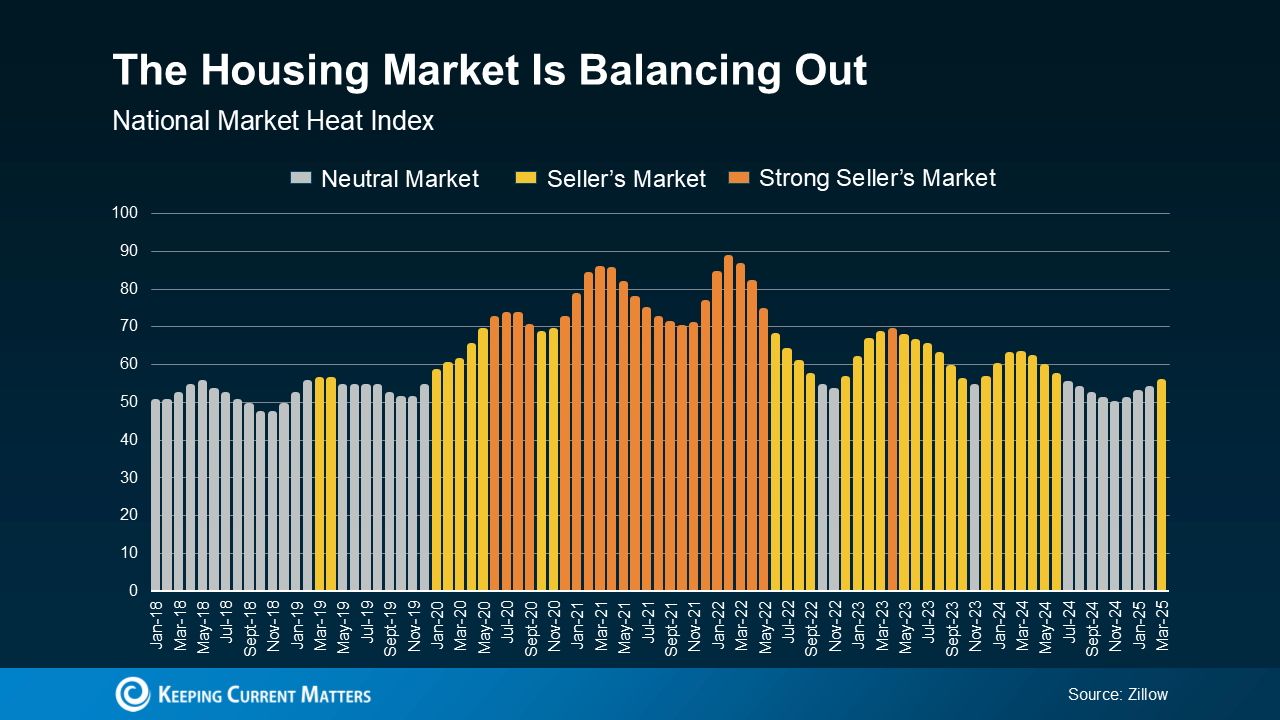
The index shown in this graph tracks how much the housing market leans toward buyers, sellers, or stays neutral—essentially, who has the upper hand. It scores the market on a scale from 0 to 100 each month. The closer the number is to 100, the more it favors sellers.
The orange bars at the center highlight the peak of the seller’s advantage—mainly between 2020 and early 2022. But since then, things have been shifting. The market has gradually cooled from that intense seller’s market to something more balanced. Now, we’re seeing more neutral conditions (shown in gray on the right), giving buyers a bit more leverage.
In a balanced or neutral market, homes typically sit longer before selling, bidding wars happen less often, and sellers may need to offer incentives—like price cuts or help with closing costs. That creates new opportunities for buyers, especially compared to the fast-paced, competitive market of a few years ago.
What’s Behind the Shift?
A major factor is inventory. More homes on the market means buyers have more choices, and that slows down price growth. But as Realtor.com data shows, that increase in housing supply isn’t happening everywhere at the same pace (see chart below).
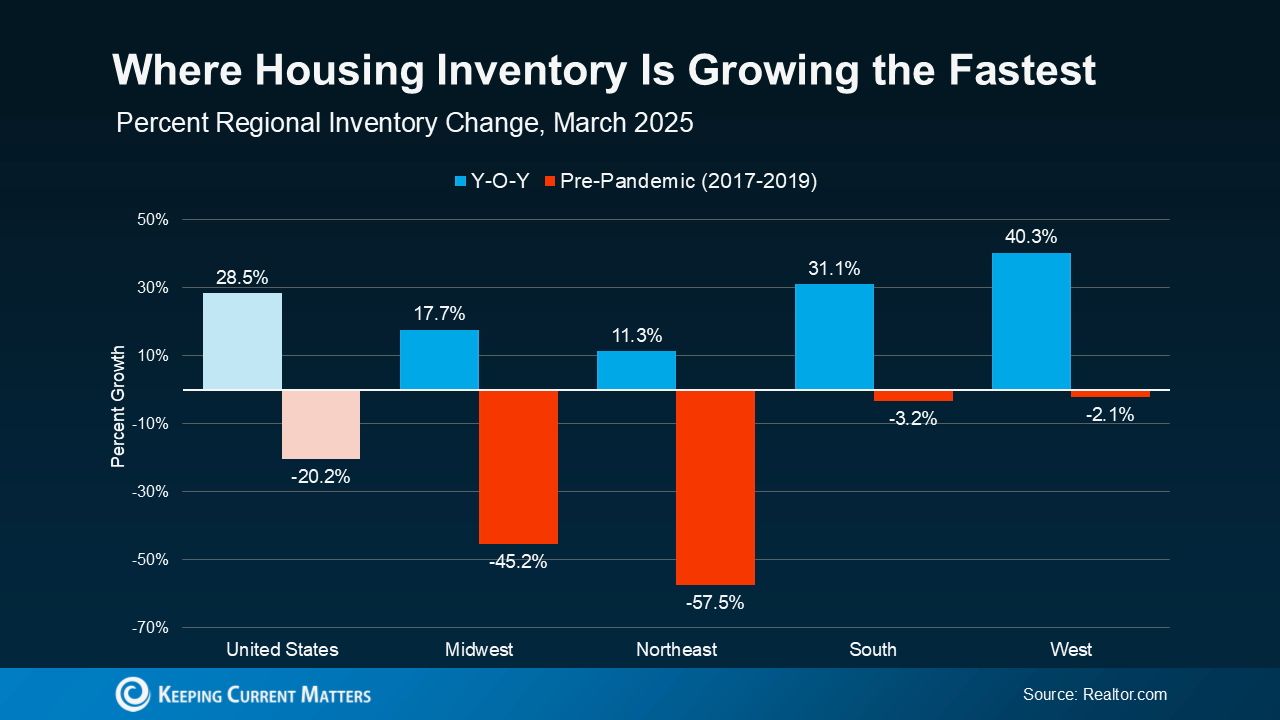
This chart compares housing inventory across different regions, looking at how it’s changed from last year (blue bars) and how it stacks up against pre-pandemic levels from 2017–2019 (red bars).
In the South and West, inventory has surged over the past year—those blue bars on the right show a strong rebound, nearly back to pre-2020 levels. That’s why we’re starting to see more buyer-friendly markets in those regions.
But in the Northeast and Midwest, housing supply is still well below pre-pandemic levels, as shown by the tall red bars. That tight inventory is keeping those areas firmly in seller’s market territory for now.
What It Means for You
The national news may grab your attention, but real estate is always local. Your city—or even your street—might be telling a very different story than the national average.
That’s why understanding your local market conditions is essential when deciding how to approach your move. Are you in a competitive seller’s market, or a buyer’s market with more room to negotiate? And here’s where working with a local agent really pays off.
Why a Local Agent Matters As Zillow puts it:
“Agents are experts on their local markets and can craft buying or selling strategies tailored to local market conditions.”
Agents understand the unique trends in your area and can help you make the best choices, whether you’re buying or selling. With their expert strategies, you can move no matter which way the market is leaning, because they know how to navigate various levels of buyer competition, how to find hidden gems locally, how to price a house right, how to negotiate based on who has more leverage, and more.
A knowledgeable real estate agent doesn’t just know the trends—they know how to act on them. Whether you’re buying or selling, they can help you:
- Price a home competitively or spot overpriced listings
- Adjust your offer or strategy depending on local buyer demand
- Uncover opportunities others might miss
- Negotiate effectively based on who has the upper hand
Bottom Line
If you’re thinking about making a move—or even just starting to explore your options—now’s a great time to connect with a trusted local real estate agent. They have the insight and experience to help you make sense of what’s happening in your specific market and can build a personalized strategy that fits your goals.
Whether you’re buying, selling, or simply curious, having a knowledgeable expert by your side makes all the difference.
So, what’s one thing you’ve been wondering about in your local housing market lately? Let’s talk about it.
Categories
Recent Posts
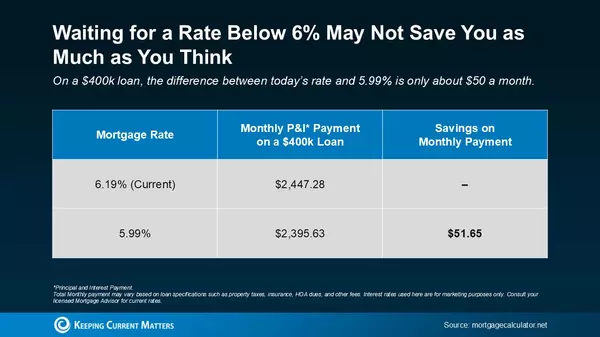
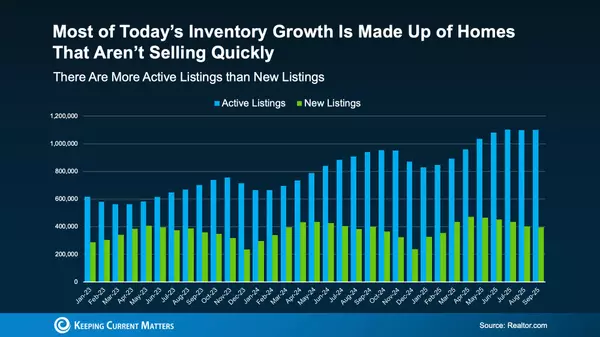
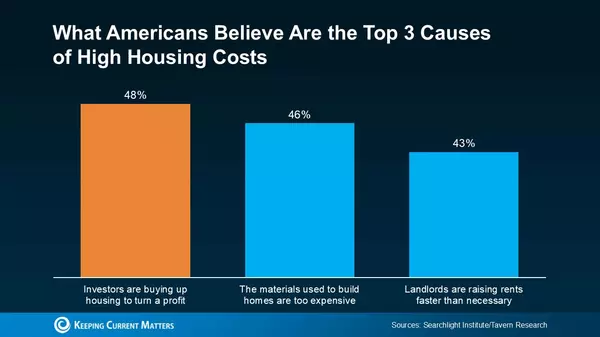
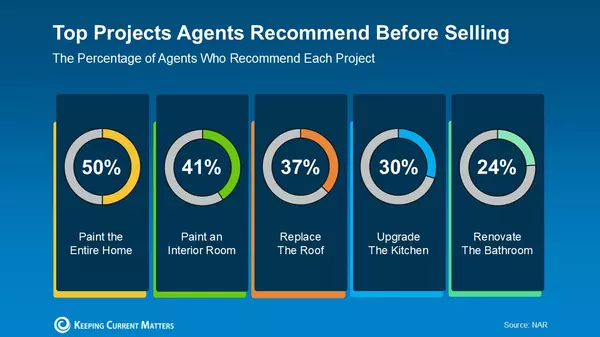
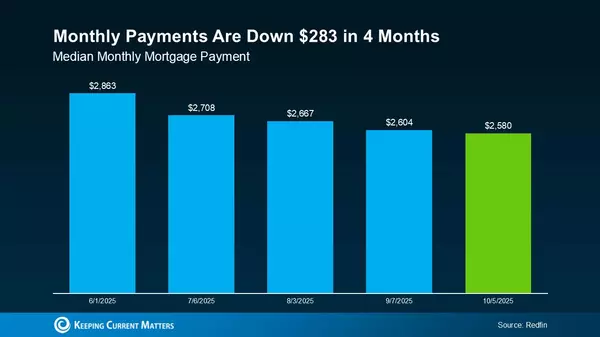
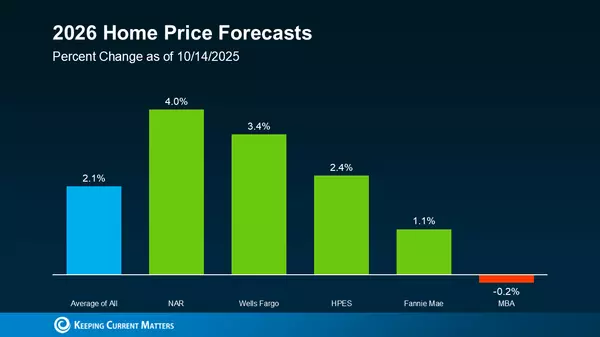
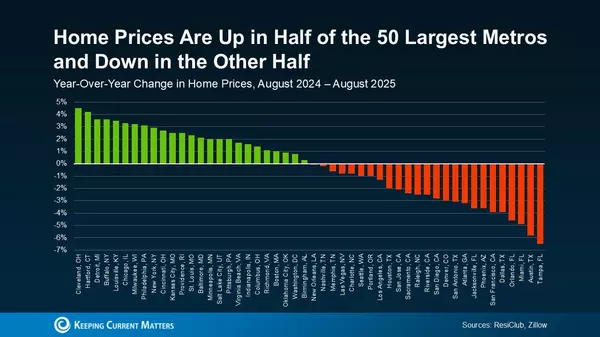
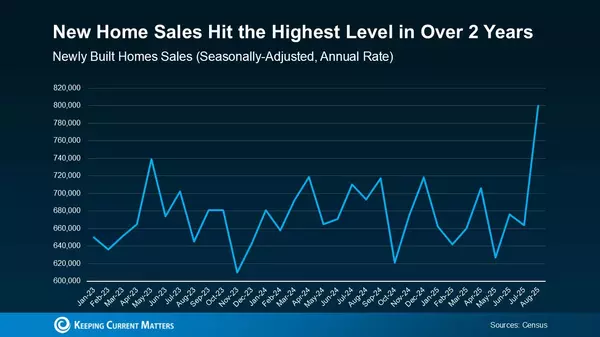
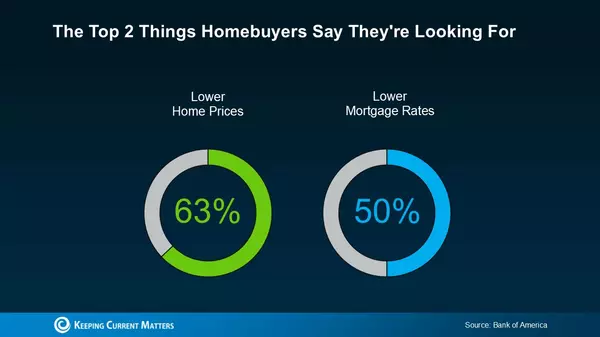
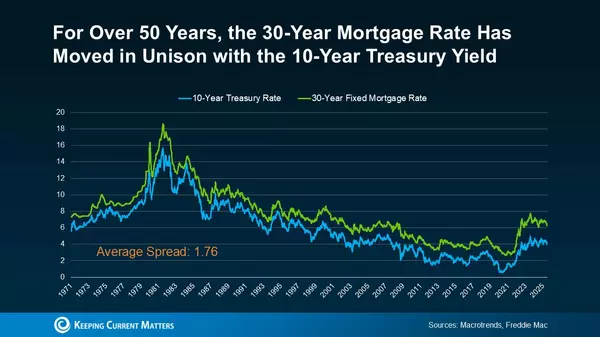
GET MORE INFORMATION


